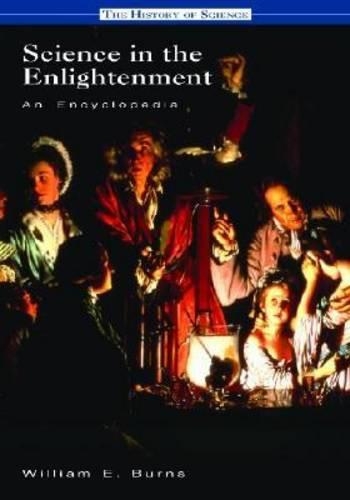
Science in the Enlightenment: An Encyclopedia
(Hardback)
Publishing Details
Science in the Enlightenment: An Encyclopedia
By (Author) William E. Burns
Bloomsbury Publishing PLC
ABC-CLIO
17th November 2003
United States
Classifications
Tertiary Education
Non Fiction
Reference works
509
Physical Properties
Hardback
384
Width 178mm, Height 254mm
851g
Description
The first introductory A-Z resource on the dynamic achievements in science from the late 1600s to 1820, including the great minds and science's new cultural role. Among the Enlightenment's many nifty discoveries and inventions were electricity and bifocals from Benjamin Franklin, and many chemical elements and the oil-burning lamp, courtesy of Humphry Davy. It was an age of brilliant and eccentric personages, including Linnaeus, whose system of classification led him to identify the rhinoceros as a rodent, and Combustion expert Antoine Lavoisier, who lost his head during the Terror. Though a time of amazing scientific change, science is an often-neglected facet of the Enlightenment. Now, Science in the Enlightenment redresses the balance by covering all the major scientific developments in the period between Newton's discoveries in the late 1600s to the early 1800s of Faraday and Cuvier. Over 200 A-Z entries explore a range of disciplines, including astronomy and medicine, scientists, such as Humphry Davy and Benjamin Franklin, associations, like the Royal Society and the American Philosophical Society, and instruments, such as the telescope and calorimeter. Emphasis is placed on the role of women and the globalization and popularization of science, and proper attention is given to the shifts in the world view brought about by Newtonian physics, Lavoisier's "chemical revolution", and universal systems of botanical and zoological classification. Moreover, the social impact of science is explored, as well as the way in which the work of scientists influenced the thinking of philosophers such as Voltaire and Diderot, and the writers and artists of the Romantic Movement.
Reviews
"Intended for people in high school, college, and beyond ... this volume fills a need, as there is little published that is devoted to this particular era of scientific discovery. This would be a useful resource for high school, college, and large public libraries." - Booklist "This book is a very useful addition to any collection with a need to cover the history of science during this formative age." - American Reference Books Annual "Most libraries will want the book in the reference collection. Recommended. All collections." - Choice
Author Bio
William Earl Burns is a professional historian living in Washington, D.C. He is the author of ABC-CLIO's The Scientific Revolution and has written articles for the ABC-CLIO World History website.
